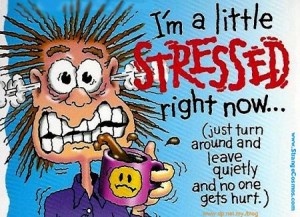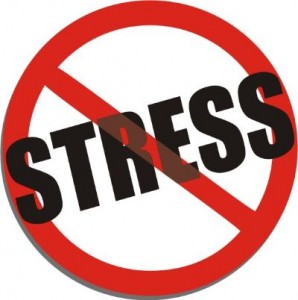- Home
- About Us
- Clinical Psychology
- Stress Resilience
- Sports Resilience
- Holistic Therapies
- Testimonials
- Contact
- Associates
Stress Resilience
 We can all relate to the experience of stress in our lives. It’s part and parcel of being human.
We can all relate to the experience of stress in our lives. It’s part and parcel of being human.
Stress can be defined as what we feel when we’re under too much mental or emotional pressure. Research indicates that a certain amount of pressure can help us stay focused, energetic, alert, enhance performance, enable us to meet challenges we face and can even save our life in emergency situations. However, prolonged pressure or too much pressure can turn into stress when we struggle to cope. Too much stress can seriously damage our physical and emotional health, functioning, relationships and quality of life.
For example, stress can disrupt every system in our body and the effects can:
- Raise blood pressure, suppress our immune system, speed up the aging process,
- Increase risks of: heart attack, stroke, infertility, mental health problems.
- Cause or exacerbate health problems e.g. sleep problems, depression, heart disease, autoimmune diseases, skin conditions, such as eczema, digestive problems, obesity, pain of any kind.
Most of us live in a fast-paced, busy world and many of the demands we face as we go about our lives can be a source of stress including relationships, money, work, exams and family.
Stress related issues are all too common and are on the increase. Several studies have shown that:
“1 in 4 of us experience stress related emotional difficulties at any one time”.
Stress: Signs and Symptoms
Stress affects our mind, body, and behaviour in many ways, and we all react differently to stress. Just how much is ‘too much’ differs from person to person. A situation that feels stressful to one person may be motivating to someone else. Some people seem to thrive on the excitement of a high-pressured lifestyle; some people seem to be able to roll with life’s punches, whilst others struggle to tolerate the slightest obstacle or frustration.
Given the widespread damage stress can cause to our health, it’s important to know how stress affects us and to know our own limit.
The signs and symptoms of stress overload can be almost anything.
Common signs of stress include:
- Headaches, muscle tension or pain, dizziness, sweating, nausea, diarrhoea, constipation
- Feeling anxious, racing thoughts, worrying, having a negative outlook
- Sleeping problems, loss of appetite and difficulty concentrating.
- Anxious habits (e.g. pacing, nail biting)
- Low in self esteem, depression or general unhappiness
- Feeling irritable, losing temper more easily, acting unreasonably
- Can’t relax
- Procrastinating or neglecting responsibilities
- Isolating yourself from others, sense of loneliness
- Loss of sex drive
- Frequent colds
- Using alcohol, drugs, cigarettes
Coping with Stress
 We can’t completely eliminate stress from our life, but we can control how much it affects us. The good news is that we can prevent the negative effects of chronic stress by learning how to manage our stress effectively. An important part of this involves building our mental resilience and learning how to recognise when our stress levels are out of control.
We can’t completely eliminate stress from our life, but we can control how much it affects us. The good news is that we can prevent the negative effects of chronic stress by learning how to manage our stress effectively. An important part of this involves building our mental resilience and learning how to recognise when our stress levels are out of control.
What is mental resilience?
Life doesn’t always go our way and challenged can hit us hard and even knock us off our feet from time to time. Our ability to get back up, dust ourselves down and keep going in the direction we want to go is what I call resilience. In other words, resilience is our ability to reside in that place of “I’m OK” inside, no matter what happens on the outside.
What is emotional intelligence?
 Emotional intelligence is another vital skill to learn and develop to stay in control of stress. A key element of mental resilience, emotional intelligence can be described as our ability to identify, use and regulate our emotions to enhance our well-being and get what we want out of life.
Emotional intelligence is another vital skill to learn and develop to stay in control of stress. A key element of mental resilience, emotional intelligence can be described as our ability to identify, use and regulate our emotions to enhance our well-being and get what we want out of life.
Happiness in Mind offers you the opportunity to learn a range of coping strategies to relieve stress, increase your ability to stay calm and collected under pressure, and boost feelings of joy and contentment. This includes developing compassionate mind skills and mindfulness skills to activate the body’s soothing and relaxation response, problem solving and time management skills and lots more.
Resilience in Mind Centre
The Resilience in Mind Centre was established out of our innovative resilience work with the sporting population. Our philosophy is that ‘prevention is always better than cure’ and we aim to promote mental health, happiness, well-being & performance through resilience education and training in the general population, educational and work settings and the sports population.
Happiness in Mind offers you stress management to:
- strengthen your emotional resilience
- increase your ability to stay calm
- boost your confidence and feelings of serenity
- enable you to live a contented life
You will benefit by learning how to:
- Increase your ability to recognise how stress affects you
- Enhance your existing coping & emotional intelligence skills to ultimately boost your well-being and enable you to get what you want out of life.
This can be offered to individuals and groups and will be tailored to meet your specific needs or requirements.
Just hit the button below or call Dr Kilcommons 07378 302 335 to discuss your requirements.


